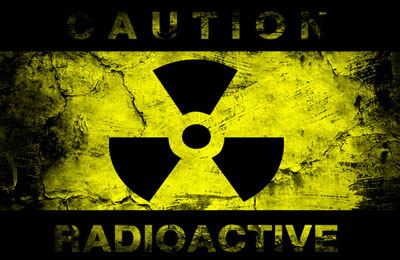
Bahrain to join GCC radiation monitoring grid
Manama, August 21, 2013
Bahrain will establish a specialist radiation detection centre that will joined to the region-wide network, which will collect radioactive data, act as an early warning system and respond to radiation exposure caused by X-rays.
The National Centre for Radiation which will be linked to detection posts that will be located across all five governorates in Bahrain, reported the Gulf Daily News.
It was revealed yesterday during a workshop, which was organised by the Supreme Council for Environment (SCE) and held at the Bahrain Chamber of Commerce and Industry in Manama.
The five-day event, headed by experts from the International Atomic Energy Agency (IAEA), aims to train officials from the council, Interior Ministry, Civil Defence and Health Ministry to use a new system to record radioactivity in the country.
SCE vice chief executive Dr Mohammed Mubarak Bin Daina said they will look into constructing more detection posts across the country after plans for the centre are approved.
"The whole point of this is to know what is going on around us," he said during the workshop.
"We at the council have gone a step further by beginning the process of creating a radiation centre, which will be an arm of this council.
"Eventually Bahrain will connect to the rest of the GCC monitoring station. There are radiation threats in many industries such as hospitals and the industrial sector. Also, with the building of a nuclear power station in the UAE and the potential of Saudi Arabia building their own, we have to be able to detect any threats. We can't protect if we don't detect,” he added.
It comes amid growing concerns about the potential impact on Bahrain and the Gulf from a disaster at Iran's controversial nuclear power plant.
The GCC last month raised concerns about radiation leaks from the Bushehr-based facility after a 6.3 magnitude earthquake hit Iran on April 9 this year, killing more than 60 people.
Saudi Arabia has also announced plans to set up 16 nuclear reactors within the next 20 years and two are already being built in the UAE, the first of which is expected to be up and running by 2017.
Meanwhile, IAEA application manager and data administrator Mathieu Souphy said the posts should be located every 20km and the data connected to a single system, called RAIS.
"I have come here to establish a national regulatory infrastructure for radiation safety," he said.
"Through the course of the workshop we will examine the national needs in terms of detection and how to customise the RAIS system to fit those needs."
SCE environmental assessment and control director Merza Khalaf said the plans are being carried out as a precautionary step.
"The possible threats in hospitals come from defective X-ray equipment and other radioactive instrumentation," he said.
"Also, there are commercial uses for radioactive material in the industrial sector which needs to be closely monitored. "It is all precautionary, but we have to be ready for anything." – TradeArabia News Service







